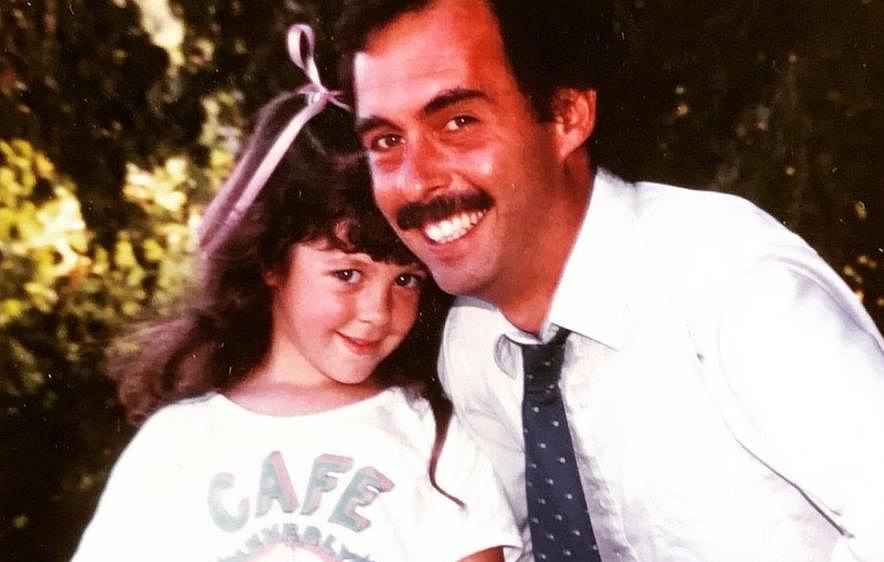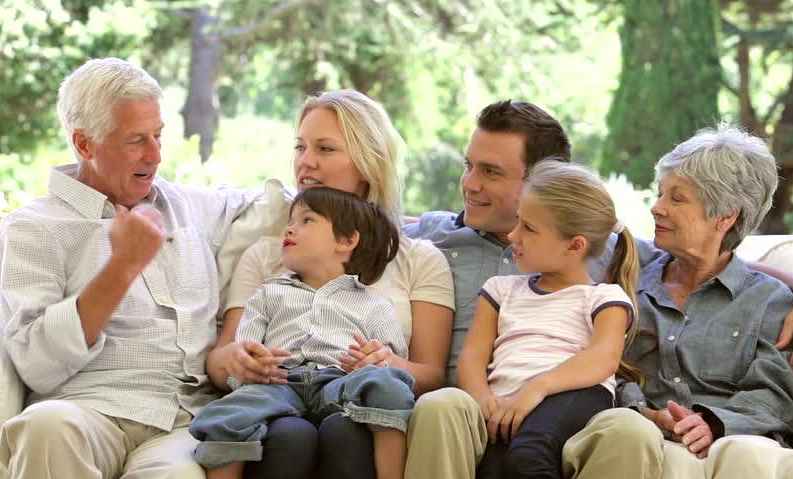






See listing of Recent and Most Popular articles on the Home Page
Connections
Category: Relationships / Topics: Family • Parenting, Parents • Relationships • Teaching
Raising Kids
by Ken Potts
Posted: January 6, 2019
Tips for holding on and letting go…
Editor's Note: While Ken's article is aimed at parents, many of you reading this will be grandparents, aunts and uncles, but the tips are appropriate to the care of family at all generations and the conversations that can guide effective parenting.
Holding on; letting go. These are two of the most important, and difficult, dynamics of any relationship.
In our families, friendships and jobs, there are times when we need to do one, or even both.
Holding on means advising, directing, counseling, or, at times, even ordering. We attempt to help the other person by exercising some authority in their lives.
Letting go means holding our tongue, standing back, keeping our opinion to ourselves, staying out of it. We attempt to help the other person by letting them have complete authority for what they do.
Figuring out when to, how to, and how much to hold on or let go is especially difficult in parent/child relationships.
Parents very clearly have to do a good deal of holding on if they are to raise healthy, happy and responsible children. Yet in the middle of all this holding on, they must also let go, or their children will never become self-sufficient adults.
A simple example is crossing the street. A 2-year-old obviously needs his parent to hold on (literally to his hand) when they come to a crosswalk. Yet, a 22-year-old just as obviously needs for his parent to let go (i.e. trust his judgment) at that same intersection.
That's an easy one. It gets tougher.
If our child is going to learn to cross streets, we are going to need to let go long before they reach 22. But that probably means more than a few heart-stopping near misses when our 4- or 5- or 6-year- old almost runs out into traffic because they haven't quite learned the finer points of street crossing.
There are a whole host of "holding on and letting goes" that we parents have to do as part of raising our children: from relating to friends, to going to school, to buying a candy bar, to sexuality, to health (drugs, etc ...), to driving, to going to church, to voting, to vocation, to getting married and having children of their own. And these are just some of the areas where we start out doing a good deal of holding on, but sooner or later must let go.
Let's complicate matters even more. Different children, in different circumstances, at different ages, require a different balance of holding on and letting go.
Our daughter's personality is such that she has always been able to handle more letting go than our son. Our son, on the other hand, may handle responsibility fine at school, but have trouble when he is out playing with his friends. And though our daughter could go to the store at age 7 and do just fine, our 9-year-old son still gets confused. You get the idea.
Ultimately, balance is the key to holding on and letting go. We find a balance between the two, which is fine-tuned to each child, in each circumstance, at each age. It takes a lot of work for parents to achieve this balance, but we can do it.
And we must do it. Too little holding on and too much letting go and our children will wonder how much we care, and will not learn from us what they need to know to navigate in the adult world.
Too much holding on and too little letting go and our children will believe we do not have confidence in them, and will fail to learn from their own trials and errors what they need to know.
Holding on and letting go. If this is a balance you are struggling with, there are a number of excellent parenting books that deal with this dynamic. Or you may want to consult a family counselor for a few pointers.
Search all articles by Ken Potts
Dr. Ken Potts is on the staff of SamaraCare Counseling Center in Naperville and Downers Grove, Illinois. • E-mail the author (gro.gnilesnuoceracaramas@sttopk*) • Author's website (personal or primary**)* For web-based email, you may need to copy and paste the address yourself.
** opens in a new tab or window. Close it to return here.
Posted: January 6, 2019 Accessed 394 times
![]() Go to the list of most recent Connections Articles
Go to the list of most recent Connections Articles
![]() Search Connections (You can expand the search to the entire site)
Search Connections (You can expand the search to the entire site)
![]() Go to the list of Most Recent and Most Popular Articles across the site (Home Page)
Go to the list of Most Recent and Most Popular Articles across the site (Home Page)
 Loading requested view...
Loading requested view...